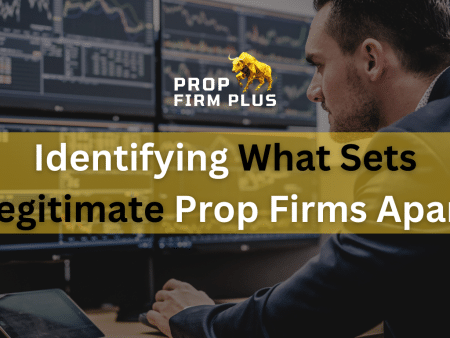
Proprietary trading firms are poised to benefit from a movement in the banking industry toward more sustainable and ethical investment practices.
The principles of Environmental, Social, and Governance (ESG) are gaining significance in the financial industry due to the growing awareness among firms of their social influence on the surrounding environment.
Future trends indicate that in order to ensure the health and prosperity of our planet, sustainable business practices are required.
If a proprietary trading firm’s investments in businesses and the people they finance are not carefully considered, they may contribute to the absolute consumption of the planet’s resources. Now let’s examine how proprietary trading firms and their traders are acting as a result of this pervasive ESG integration.
Execution of ESG Laws
The financial sector has seen a dramatic increase in the integration of ESG concepts throughout time. Large shareholders, traders, and investors are all putting pressure on businesses to be more environmentally conscious, transparent, and accountable.
It has mostly resulted from a greater awareness of social inequality, climate change, and significant business scandals.
Firms are being compelled to adopt sustainable business practices in order to maintain the finance that they formerly obtained with such ease. They must now take into account the effects on the planet before expanding their empires.
Analyzing a company’s adherence to ESG principles is one of the main methods used by investors to choose which ones to participate in. These are a company’s social, environmental, and political initiatives. A company’s score rises when it does well in all three categories, and investors can use this number as a simple indicator when selecting sustainable investments.
Participation and Protest
More and more proprietary trading firms’ private funds are being used to invest in companies that adhere to environmental, social, and governance (ESG) standards, despite the fact that these firms do not actively engage in or compel traders to do so. This is particularly true for the safer, longer-term trades that these companies make.
In addition, a large number of investors in general are pushing for traders to vet the businesses they trade and invest in to make sure they adhere to appropriate ESG criteria. Prop traders usually use the earnings from their funded accounts to build their long-term portfolios rather than making long-term investments directly through these accounts.
This is where the larger change is evident, as an increasing number of traders are allocating more capital to ESG-abiding companies, either on their own initiative or as a result of encouragement from fellow traders. Future trends only point to an increase in sustainable investing activity over time as the financial sector comes to understand the significance of sustainability.
Numerous advocates for climate change and climate action are urging businesses to adopt more environmentally friendly policies, such as increasing their use of renewable energy, improving employee perks, and following laws without exception, including those pertaining to tax havens.
Hazard Assessment
It is far more common to look at a company’s fundamentals when assessing its risks from an ESG investing perspective than it is to utilize the standard technical analysis that most traders are accustomed to. This is so because long-term investing, as opposed to short-term investing, is how ESG integration into trade occurs.
You must be an engaged shareholder in a firm for an extended length of time in order to invest in it. This implies that funding these businesses is usually a longer-term commitment.
For this reason, it is even more crucial to examine a company’s foundational principles, but with a new perspective. Rather than examining the standard data such as the 52-week high or low, or the number of jobs they’re creating, we can be ESG oriented.
This way, we are able to examine a company’s water use, human rights breaches, carbon emissions, and corporate governance policies.
However, such analysis does not ensure gains or profits in the market. Since this is a relatively novel idea in the financial industry, you should absolutely do your homework.
Creativity and Cooperation
Proprietary trading firms have a lot of influence over new technological advancements and innovations in their industries because they are often such significant stakeholders and investors in businesses.
As a result, companies may be urged to develop in a more environmentally friendly way than first intended by proprietary trading firms that support ESG principles and sustainable business practices.
For instance, a company may advocate for the adoption of a new renewable energy project within the company by using its influence as a result of its sizable ownership stake in the latter.
They might also emphasize how crucial it is to cut back on the unlawful offshore labor that the business uses in order to make money and promote more equitable treatment of people by providing them with decent pay, hours, and working conditions.
Newer ETFs and index funds centered around ESG-abiding companies are being developed more often, and in due course, prop firms may start supporting them as legitimate instruments to trade on their platforms, in addition to the innovation of technologies within the companies themselves. This would only serve to increase the inventiveness of these businesses that adhere to ESG principles and lessen the detrimental effects that people have on the environment and society.
Observance and Documentation
While it’s admirable that prop firms are beginning to push for greater integration of ESG principles into businesses, it appears incongruous if the prop firms themselves don’t adhere to these standards.
Because of this, some prop companies are beginning to follow suit and are choosing to hire qualified people and give them the proper benefits, time off, and compensation. They are also using more renewable energy sources and more energy-efficient technology and software to reduce resource waste.
The prop firms themselves will have ESG ratings, just like any other financial establishment. This implies that you are able to witness firsthand the efforts made by your preferred prop company to protect the environment!
Independent ESG rating companies are the best when it comes to actually disclosing these ratings to the general public. They carry out impartial external assessments of a business’s performance on the ESG scales and offer insightful advice to investors on how best to allocate their capital in the financial industries.










